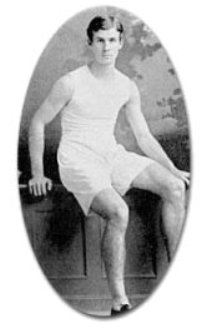| This article needs additional citations for verification. Please help improve this article by adding citations to reliable sources. Unsourced material may be challenged and removed. Find sources: "Percival Molson" – news · newspapers · books · scholar · JSTOR (May 2020) (Learn how and when to remove this message) |
 Percival Molson Percival Molson | |
| Born: | (1880-08-14)August 14, 1880 Cacouna, Quebec |
|---|---|
| Died: | July 5, 1917(1917-07-05) (aged 36) Avion, France |
| Career information | |
| Position(s) | Running back |
| College | McGill University |
| Career history | |
| As player | |
| 1902–1906 | Montreal AAA Winged Wheelers |
| Career stats | |
Captain Percival Talbot "Percy" Molson, MC (August 14, 1880 – July 5, 1917) was a Canadian star athlete and soldier. After an outstanding sports career with McGill University, Molson joined its administration. Molson died fighting in World War I. In his will, he donated funds for McGill to build its football stadium, named Percival Molson Memorial Stadium in his honour.
Biography
An Anglo-Quebecer, Molson was born in the resort community of Cacouna, Québec, on the St. Lawrence River. He was the son of John Thomas Molson (1837–1910) and Jane (Jennie) Baker Butler (1850–1926). A gifted athlete, at the age of sixteen Percival Molson participated in several sports and as an ice hockey player he was a member of the Montreal Victorias that won the 1897 Stanley Cup championship.
While studying at McGill University, Percival Molson captained the hockey team, starred in track and field competitions, played racquet sports, and made the football team. He was named McGill University's best "all-round athlete" three years in a row, a feat unmatched in the university's history. Throughout competitions in which he participated, he was acclaimed for his sense of fair play and achieved the remarkable distinction of never having been penalized for misconduct in any sport. In track and field he competed in several events including the Long Jump in which he set a world record at the American Athletics Meet in 1900. In 1903, he won the United States Outdoor Track and Field Long Jump championship. After Molson easily beat American Harry Hillman at the 1903 Canadian Championships in the 400 meter race, it was thought he had a chance in that event at the 1904 Summer Olympics in St. Louis, Missouri. However, he finished well back in the field.

After graduation in 1901, Percival Molson was appointed to his University's Board of Governors, the youngest person ever named to that position. While a McGill University Board member he served as the chair of its Finance and Stadium committees. The university authorised construction of a new stadium to be built in Macdonald Park at the corner of University and Pine Avenues. However, with the onset of World War I, matters had to be delayed. Percival Molson along with George McDonald were instrumental in establishing the University Companies at McGill and other Canadian campuses to reinforce Princess Patricia's Canadian Light Infantry. Over a thousand men joined the Regiment through six University Companies. Many were subsequently commissioned from the ranks and went on to serve as officers in other Canadian and British units.
Captain Molson joined the Patricia's in the field with the 2nd University Company in October 1915. In June 1916, he was badly wounded in the Battle of Mount Sorrel at Sanctuary Wood near Hooge, West Flanders in Belgium. During horrific encounters with the German Army, where members of the 1st, 2nd and 3rd Canadian Divisions suffered 8,430 casualties, Percival Molson received the Military Cross for his valour. After recovering from his wounds, he returned to the front lines with his Regiment (PPCLI) and on July 5, 1917, at the outskirts of Avion, Pas-de-Calais near Vimy Ridge in France, Captain Percival Molson was killed by a direct hit from a German howitzer. Captain Molson is interred in the Villers Station Cemetery in Villers-au-Bois in Pas-de-Calais.
In Percival Molson's will he left $75,000 to McGill University to help pay most of the costs for the construction of the stadium. Although it was officially dedicated as McGill Graduates' Stadium at an intercollegiate track meet on October 22, 1915, the Board of Governors of the university renamed the facility Percival Molson Memorial Stadium on October 25, 1919, in honour of this fallen hero.
In 1996, Captain Percival Molson was an inaugural inductee to the McGill University Sports Hall of Fame.
See also
References
- "Percival Molson". Olympedia. Retrieved January 10, 2021.
- "Percival Molson". Sports Reference. Archived from the original on 9 July 2017. Retrieved 3 August 2015.
- "Olympians Who Were Killed or Missing in Action or Died as a Result of War". Sports Reference. Archived from the original on 17 April 2020. Retrieved 3 August 2015.
- Hodder-Williams, Ralph (1923). Princess Patricia's Canadian Light Infantry. Toronto: Hodder and Stoughton Ltd. pp. Vol 2 p 86, Vol 1 p 80.
External links
- Percival Molson at EliteProspects.com

- Percival Molson at Olympics.com

- Percival Molson at Olympedia

- Percival Molson at Canada's Sports Hall of Fame

- 1880 births
- 1917 deaths
- Anglophone Quebec people
- Athletes (track and field) at the 1904 Summer Olympics
- Canadian Expeditionary Force officers
- Canadian Football Hall of Fame inductees
- Canadian ice hockey players
- Canadian male long jumpers
- Canadian military personnel from Quebec
- Canadian military personnel killed in World War I
- Canadian people of English descent
- Canadian recipients of the Military Cross
- Ice hockey people from Bas-Saint-Laurent
- McGill Redbirds football players
- McGill Redbirds and Martlets ice hockey players
- Molson family
- Olympic track and field athletes for Canada
- Players of Canadian football from Quebec
- Princess Patricia's Canadian Light Infantry officers
- Sport at McGill University
- Stanley Cup champions